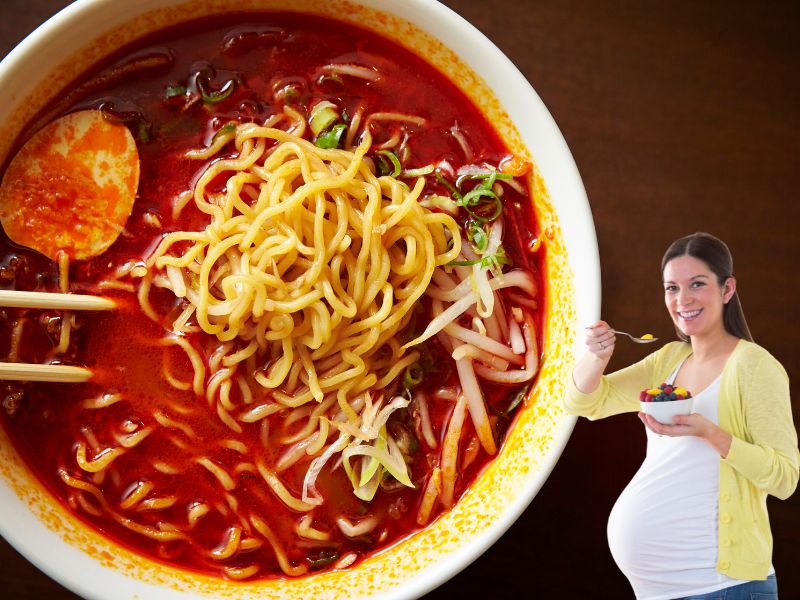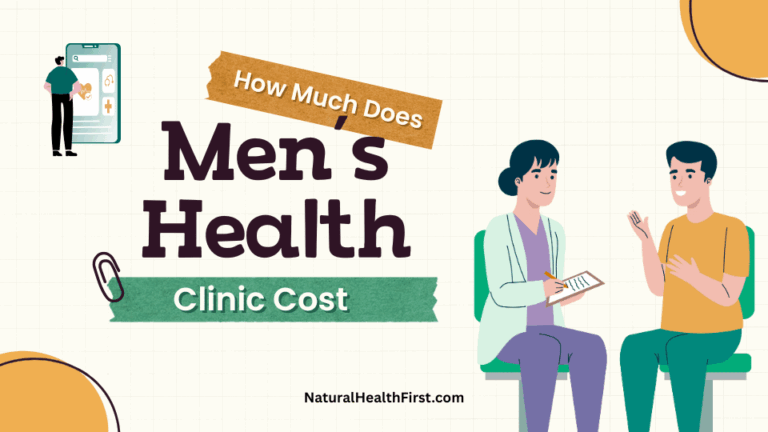Pregnancy sparks endless questions about diet, cravings, and what really is best for mom and baby. Of all the foods debated, spicy dishes stand out for their flavor, cultural significance, and frequent appearance in pregnancy cravings. It’s time to answer once and for all: can you eat spicy food while pregnant? This comprehensive, 3000-word guide reveals facts, busts myths, and delivers tables, lists, and statistics so every expecting parent can relax and make informed, flavorful choices.
Pregnancy Cravings for Spicy Foods
Pregnancy cravings are widely discussed, and many women report intense desires for foods they may not typically eat. Spicy food is at the top of this list. Researchers suggest that hormonal changes—particularly fluctuations in estrogen and progesterone—can heighten taste perception and make strong flavors more appealing.
Some women turn to spicy food for comfort, while others may find it alleviates nausea in the early months. Cravings can differ from person to person, but it’s important to know that spicy cravings are extremely common and usually harmless.
Can You Eat Spicy Food While Pregnant? The Direct Answer
The Spicy Truth: Is It Safe for Pregnancy?
The good news: The short answer is yes. Spicy food is generally safe for most pregnant women. There’s no evidence that consuming spicy dishes harms your developing baby or directly causes complications. Capsaicin, the compound responsible for the heat in peppers, doesn’t cross the placenta in dangerous amounts and won’t make your baby “spicy.” However, spicy foods can sometimes trigger discomfort for moms, such as heartburn, indigestion, or GI upset.
Craving more pregnancy tips? Discover our women’s health hub for pre- and postnatal resources.
Common Myths About Spicy Food and Pregnancy
Myth #1: Spicy food causes miscarriage.
Fact: There’s zero scientific evidence supporting this claim.
Myth #2: Eating spicy food induces labor.
Fact: While anecdotes abound, research shows labor induction is unaffected by diet; labor begins when your body and baby are ready.
Myth #3: Spicy foods alter your baby’s taste buds.
Fact: Flavor molecules can pass through amniotic fluid, gently exposing your baby to diverse tastes—which may actually prepare them for a variety of foods after birth.
Does Spicy Food Induce Labor?
One of the most common beliefs is that spicy foods can induce labor. While spicy foods may cause intestinal contractions, they do not trigger uterine contractions necessary for labor.
Research Findings:
- No clinical studies prove spicy foods induce labor.
- Labor begins due to hormonal changes, not dietary intake.
- At most, spicy food may lead to stomach upset, creating the illusion of labor onset.
Why Do Pregnant Women Crave Spicy Food?
Hormonal changes during pregnancy can intensify taste preferences and cravings. For some, spicy foods provide a sensory thrill or distinct satisfaction. Others find that certain spicy dishes help combat nausea or stimulate appetite during sluggish phases.
Flavorful dishes often play a comforting role during emotional swings—a common experience during pregnancy. Want to balance health and comfort in your routine? Explore habit-building tips at our lifestyle section.

Potential Side Effects of Spicy Foods in Pregnancy
- Heartburn or acid reflux (more common in the third trimester)
- Indigestion or bloating
- Nausea (in sensitive individuals)
- Diarrhea or GI upset (after very hot dishes)
- Sleep disturbances from food-related discomfort
If you struggle with these symptoms, limiting very spicy foods or eating them earlier in the day may help. Hydrate, eat slowly, and choose milder spices if needed.
Spicy Foods—Pregnancy Safety and Comfort
| Food Type | Typical Spices | Safety (Pregnancy) | Notes |
|---|---|---|---|
| Indian Curries | Chili, cayenne | Safe, in moderation | Watch for oil/greasiness |
| Mexican Dishes | Jalapenos, salsa | Safe | Pair with dairy to soothe |
| Thai Food | Red/green chili | Safe | Coconut milk balances heat |
| Sichuan Cuisine | Peppercorn, chili | Safe | Avoid excess salt |
| Hot Sauces | Various peppers | Safe (small amts) | Can trigger reflux |
| Pickles/Kimchi | Chili, garlic | Safe, probiotics | May upset stomach, watch sodium |
Benefits of Eating Spicy Food During Pregnancy
Surprisingly, spicy food during pregnancy can provide some benefits when consumed in moderation:
Digestive Support:
Spices such as ginger, turmeric, and cumin may aid digestion, reduce nausea, and have natural anti-inflammatory effects.
Metabolic Boost:
Certain spicy foods can mildly increase metabolism and decrease appetite if overeating is an issue.
Immune Health:
Peppers and spices boast antioxidants (vitamin C, flavonoids) which support the immune system—a plus when pregnancy can lower resistance.
Improves Circulation:
Capsaicin, the compound responsible for heat, may aid blood circulation.
Mood Enhancement:
Spicy foods trigger endorphin release, often called the “feel-good” hormones.
For nutrition facts and balanced eating during pregnancy, visit our diet & nutrition section.
Nutritional Value of Common Spices
Here is a quick look at the nutritional benefits of some spices:
| Spice | Nutritional Value | Pregnancy Benefit |
|---|---|---|
| Turmeric | Rich in curcumin, antioxidants | Anti-inflammatory, supports immunity |
| Paprika | Vitamin A, Vitamin E | Eye health and skin protection |
| Ginger | Anti-nausea compounds | Helps with morning sickness |
| Cumin | Iron, calcium | Supports blood health |
| Chili Peppers | Vitamin C, Capsaicin | Boosts immunity and circulation |

When to Be Cautious With Spicy Food in Pregnancy
Digestive Sensitivity:
Pregnant women with a history of GERD, ulcers, or irritable bowel may need to be cautious. Spicy food can aggravate heartburn, making sleep and comfort a challenge.
Food Safety:
Always ensure spicy food is prepared in a hygienic environment. Avoid raw or undercooked animal products (such as spicy sushi or ceviche) to minimize risk of foodborne illness.
Allergies and Intolerances:
Pregnancy can rarely trigger new food sensitivities. Start with mild spices and monitor reactions.
Spicy Food and Baby’s Development
Many mothers worry whether spicy foods affect their baby’s development. The truth is that spicy foods do not cross the placenta in harmful quantities. The nutrients from your overall diet matter far more than occasional spicy meals.
Interestingly, research suggests that amniotic fluid may carry traces of flavors from the mother’s diet. This could help introduce the baby to a variety of tastes before birth, possibly making them more accepting of diverse foods after delivery.
Spicy Food and Labor: Facts vs. Folklore
Across cultures, spicy food has long been rumored to “kickstart labor” in overdue pregnancies. Scientific bodies have found no direct link. However, spicy foods may stimulate the gut, leading to increased bowel movements—sometimes confused with early labor signs. Always trust your healthcare provider’s advice over folklore.
Spicy Foods in Everyday vs. Pregnant Diets
| Factor | Everyday Diet | Pregnancy Diet |
|---|---|---|
| Tolerance to heat | May be higher | Lower due to GI changes |
| Heartburn risks | Moderate | Higher, esp. late pregnancy |
| Portion control | Flexible | Better with moderation |
| Anti-nausea properties | Useful for some | Ginger/turmeric best choice |
| Labor effects | None | Not evidence-based |
Tips for Eating Spicy Food While Pregnant
- Opt for homemade recipes to control spice levels and ingredient quality.
- Pair spicy foods with dairy (yogurt, milk) to mellow heat and prevent acid irritation.
- Eat spicy meals earlier in the day or after a small snack.
- Hydrate frequently to offset dehydration from strong spices.
- Monitor personal symptoms—every body reacts differently.
Oral health can become more sensitive during pregnancy. If you experience gum discomfort after eating spicy foods, explore soothing solutions in natural remedies for receding gums.
Useful Data & Trends About Spicy Eating During Pregnancy
- 49% of surveyed pregnant women reported craving spicy foods during at least one trimester.
- The highest cravings occurred in the second trimester, often coinciding with improved energy and reduced nausea.
- About 39% reported mild heartburn after spicy meals, but only 8% found it intolerable enough to avoid spicy foods altogether.
- Asian and Latin American cuisines are preferred sources of spice among expecting mothers in urban areas.
Pregnancy Super Spices: The Best and Safest Choices
Ginger: Proven for nausea relief, digestion, and anti-inflammatory effects.
Turmeric: Traditionally used to reduce pain and inflammation, and safe in culinary amounts.
Cumin: Eases bloating, may support iron levels.
Paprika, mild chili: Adds flavor without extreme heat.
Cardamom, cinnamon: Helps control nausea and sweet cravings.
Practical Meal Ideas for Pregnant Women Who Love Spice
Instead of avoiding spice altogether, you can modify recipes for a pregnancy-safe diet.
Mild and Healthy Options:
- Vegetable curry with turmeric and mild chili
- Baked chicken with paprika and lemon
- Lentil soup with cumin and ginger
- Stir-fried vegetables with garlic and soy sauce
- Yogurt-based dips with mint and coriander
When You Should See a Doctor
- Severe abdominal pain, persistent vomiting, or bloody stool after spicy meals.
- Allergic reactions (swelling, hives, breathing issues).
- Heartburn that does not respond to safe antacids.
- Chronic food aversions impacting nutrition.
Always consult with your OB/GYN or healthcare provider before making major diet changes during pregnancy.
Bringing Flavor and Health Together
Pregnancy is an adventure—one that should include joy, flavor, and comfort. If you’re healthy, and your body tolerates spice, there’s no need to avoid the foods you love. Listen to your cravings, adjust portions, and enjoy culinary adventures guilt-free.
For more complete lifestyle inspiration, explore our lifestyle section.
Final Thoughts: The Verdict on Spicy Food for Pregnant Women
So, can you eat spicy food while pregnant? Yes, most women can enjoy spicy dishes, savor their favorite flavors, and satisfy cravings with minimal risk. You may need to tweak meals for comfort, monitor symptoms, and avoid myths that limit your enjoyment. Focus on safe preparation, healthy ingredient choices, and open communication with your healthcare team.
Want to dive deeper into women’s health and pregnancy wellness? Start with our evidence-rich women’s health guide and explore how vibrant nutrition choices benefit you (and your baby) from conception to birth.
Remember: flavor is your friend and variety can be a gift—eat smart, listen to your body, and enjoy every spicy moment of pregnancy!
FAQs – Frequently Asked Questions
Is it safe to eat spicy food during pregnancy?
Yes, eating spicy food during pregnancy is generally considered safe for most women. It does not harm your baby directly, but it may cause discomfort such as heartburn, indigestion, or acid reflux. If you already experience digestive sensitivity, it’s best to enjoy spicy meals in moderation to avoid unnecessary discomfort.
Can spicy food trigger labor while pregnant?
There is a popular belief that spicy food can trigger labor, but scientific research has not confirmed this claim. Spicy foods may stimulate digestion and sometimes cause mild cramping, but they are not proven to induce labor. If you are near your due date and considering natural ways to prepare for labor, consult your healthcare provider first.
What are the side effects of eating too much spicy food during pregnancy?
Overeating spicy food during pregnancy may lead to heartburn, upset stomach, bloating, or diarrhea. Pregnant women often experience slower digestion due to hormonal changes, which can intensify these effects. To reduce side effects, drink plenty of water, eat smaller meals, and balance spicy foods with mild, soothing options.
Are there any benefits of eating spicy food while pregnant?
Yes, spicy foods can provide some benefits when eaten in moderation. Many spices, such as turmeric, chili peppers, and ginger, contain antioxidants and anti-inflammatory compounds. These may support immunity and digestion. Additionally, spicy food can increase appetite, helping expectant mothers get more nutrients from their diet.
How can I manage heartburn caused by spicy food during pregnancy?
Heartburn is common during pregnancy and can worsen after eating spicy meals. To manage it, avoid eating large spicy dishes close to bedtime, sit upright after eating, and drink milk or coconut water for relief. Wearing loose clothing and eating smaller, frequent meals also help reduce discomfort.






